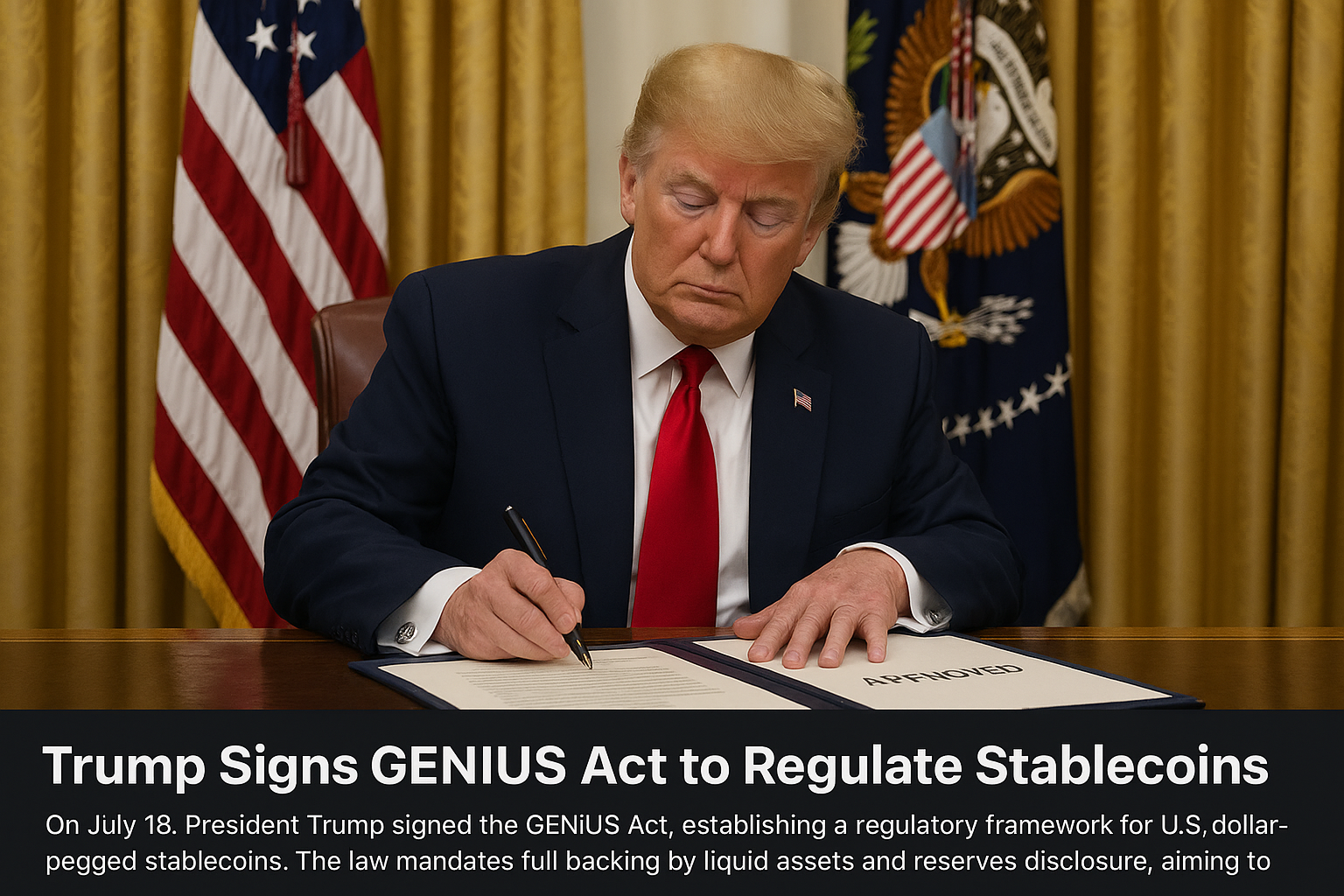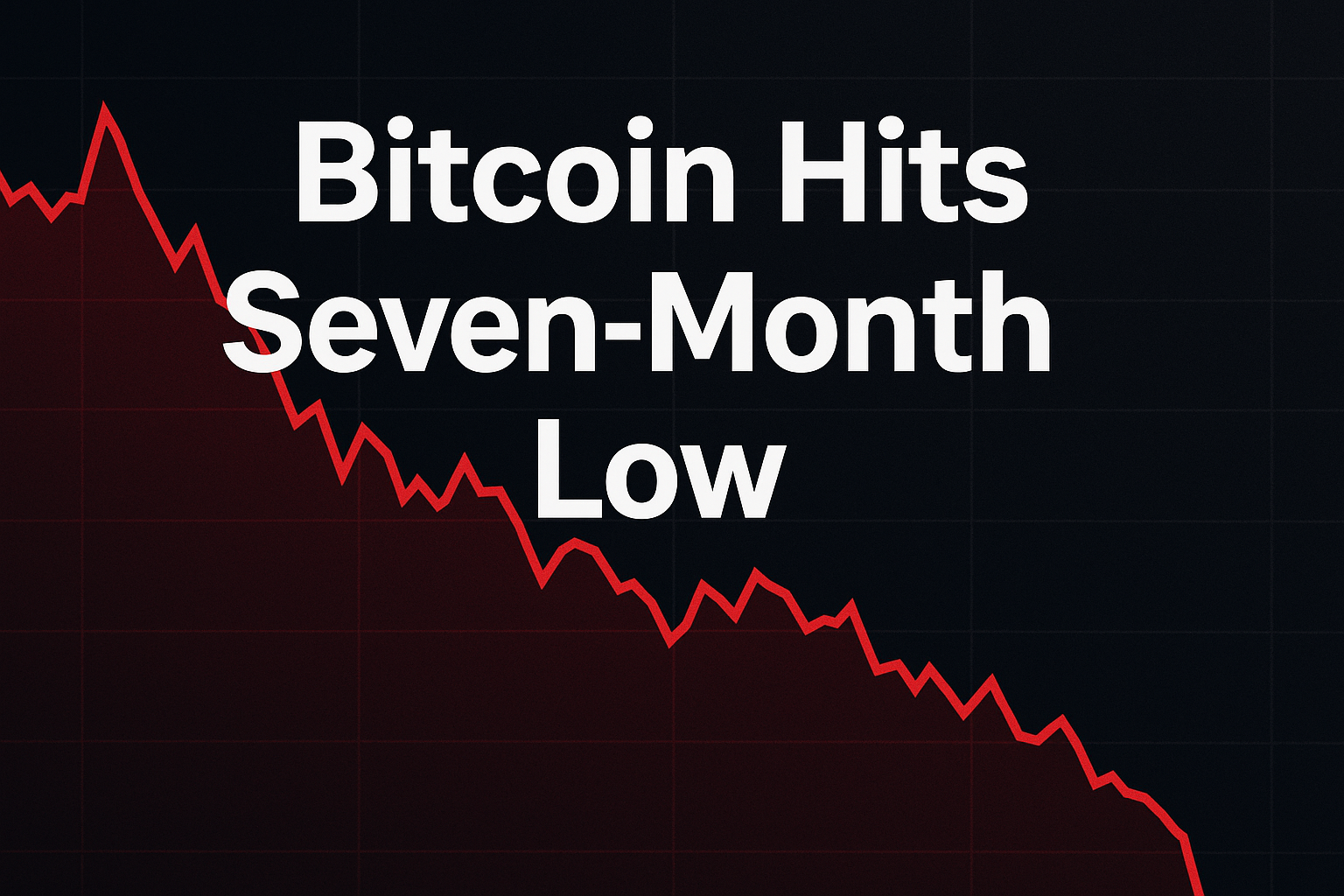On July 18, former President Donald Trump signed into law the GENIUS Act—an unprecedented step toward defining the future of digital currency in the United States. The legislation, officially named the Guidelines for Ensuring National Integrity in U.S. Stablecoins (GENIUS) Act, lays the groundwork for a comprehensive regulatory framework aimed specifically at U.S. dollar-pegged stablecoins.
While stablecoins—cryptocurrencies pegged to a stable asset like the U.S. dollar—have grown rapidly in popularity over the past five years, they have also raised critical concerns related to transparency, systemic risk, and regulatory oversight. The GENIUS Act attempts to address these concerns head-on.
What the GENIUS Act Mandates
At its core, the GENIUS Act introduces a series of key requirements designed to make stablecoins more trustworthy, secure, and institutionally viable:
-
Full Asset Backing: All issued stablecoins must be backed 1:1 with liquid U.S. dollar-denominated assets.
-
Mandatory Reserve Disclosure: Issuers are required to disclose their reserves on a monthly basis, subject to independent third-party audits.
-
Licensing Requirements: Only regulated entities with a U.S. banking charter or a federal license can legally issue stablecoins.
-
Consumer Protections: In the case of insolvency or fraud, end-users must have a clearly defined path to asset recovery.
The bill passed Congress after months of debate, with bipartisan support emphasizing the need for innovation alongside responsibility. Trump’s signature now pushes the U.S. ahead of many other jurisdictions in creating a legal framework for this increasingly influential class of digital assets.
Industry Response
The crypto and fintech industries had varied responses. Major stablecoin issuers such as Circle and Paxos welcomed the regulation, with Circle CEO Jeremy Allaire stating, “This brings long-overdue clarity and confidence to the market.” Meanwhile, decentralized finance (DeFi) advocates have voiced concerns that the GENIUS Act could push innovation offshore, particularly due to its strict compliance obligations.
However, institutional investors seem to be breathing a collective sigh of relief. BlackRock, Fidelity, and other major players have long advocated for a standardized regulatory approach, particularly as they increase their exposure to blockchain-based financial instruments.
A Strategic Move Ahead of Elections?
The timing of the GENIUS Act’s passage is also notable. With the 2024 presidential election approaching and Trump reasserting influence over tech and economic policy discourse, the move may serve to bolster his stance as a pro-innovation leader. In a press statement, Trump remarked, “Stablecoins are the bridge between American innovation and global financial leadership. This law ensures that bridge is safe, transparent, and pro-American.”
The Global Ripple Effect
Other nations are watching closely. The European Union’s MiCA framework has already taken shape, but lacks the strict asset-backing rules outlined in the GENIUS Act. Experts believe this U.S. approach could become the benchmark for future international regulatory harmonization.
China, which has its own state-backed digital yuan, has not commented directly but is expected to reassess its own stablecoin posture as American influence in blockchain finance accelerates.
The GENIUS Act marks a defining moment in U.S. financial history. As crypto continues to mature, regulatory clarity becomes essential—not only to protect consumers but to legitimize blockchain finance in the eyes of institutions. Whether this new framework will stifle innovation or spark a new era of mainstream adoption remains to be seen. But one thing is clear: the era of unregulated stablecoins in the U.S. is over.




